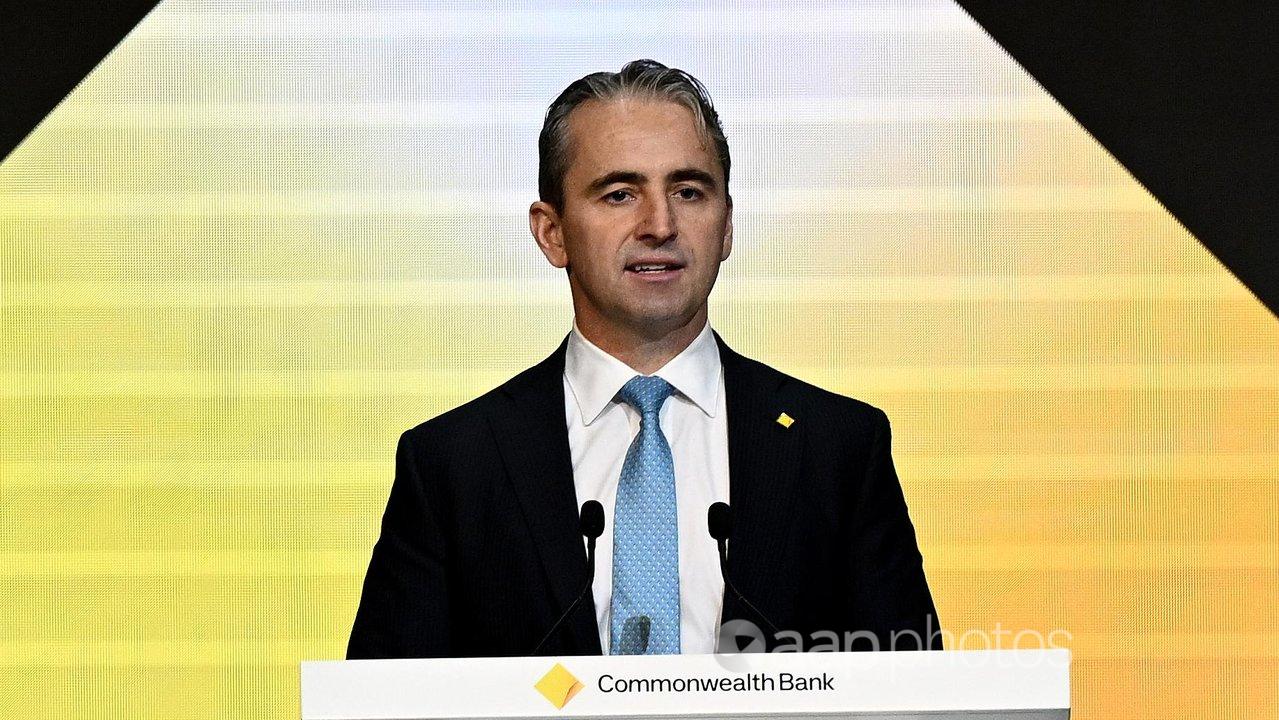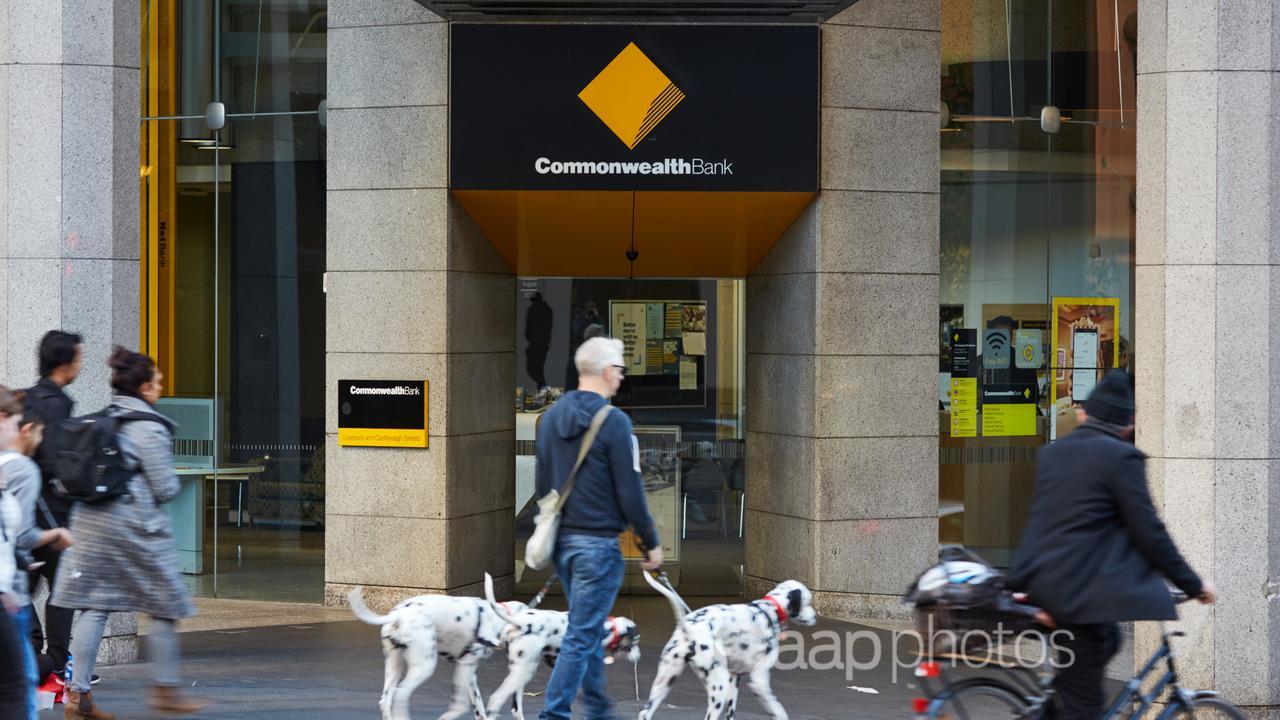Inflation and higher expenses has eroded the profit of Australia’s biggest bank, but it is still increasing its payout to shareholders.
Commonwealth Bank on Wednesday announced full-year earnings results that were largely in line with analyst expectations, although its loan impairment expenses dropped by more than a quarter, to $802 million.
Overall CBA said it had made $9.8 million in cash net profit after tax in the 12 months to June 30, down two per cent to 2023/24.
Its net interest income dropped one per cent to $22.8 billion.
CBA will pay a $2.50 fully franked dividend, taking its full-year dividend to $4.65 per share, up three per cent from a year ago.

Chief executive Matt Comyn said CBA’s net interest margin was 1.99 per cent, down eight basis points from 2023/24, mainly because of the impact of competition and deposit switching. Margins stabilised during the second half of the year.
“Our results demonstrate our continued focus on supporting our customers, our disciplined operational and strategic execution, and the strength of our balance sheet,” Mr Comyn said on Wednesday.
He said the profit reduction was due to the impact of inflation on CBA’s operating expenses, which rose four per cent to $12.1 billion.
“We remain well positioned heading into a lower growth environment,” Mr Comyn said.
The percentage of customers more than 90 days behind on their loan payments ticked up, with home loans in arrears hitting their historical average rate of 0.65 per cent after dropping well below that in recent years.
The percentage of customers behind on their personal loans and credit card payments rose to slightly above their historical average levels, which CBA said reflects the impact on customers more susceptible to ongoing cost of living pressures.

CBA said it had 132,000 tailored payment arrangements to help customers manage their mortgage and consumer finance repayments and household budgets.
“Many Australians continue to be challenged by cost-of-living pressures and a fall in real household disposable income,” Mr Comyn said.
“For customers who are finding it tough, we can support them in lots of different ways – from helping them feel more in control, to easing the pressure with a repayment plan, or accessing a safety net or working capital to support their business.”
E&P Capital analyst Azib Khan said CBA’s profit was broadly in line with expectations, with its net interest margin better than expected.
But the quality of its assets are deteriorating, particularly in its business banking and New Zealand divisions, Mr Khan said.
“We expect deteriorating asset quality metrics to weigh on sentiment,” he said.
The ACTU pointed to CBA’s $9.8 billion in profit and called for the bank to increase wages to its employees.
“Commonwealth Bank is directly contributing to inflation by proudly maintaining their margins in the face of rising costs by making customers pay more,” the union’s assistant secretary Joseph Mitchell said.
CBA shares were up 1.1 per cent to $133.98 near the close of trading on Wednesday.




















